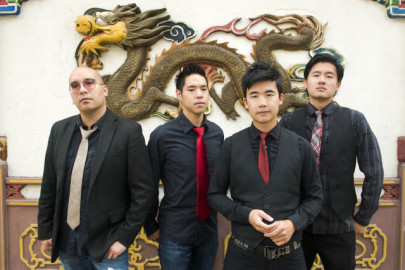
How a Seventy-Year-Old Trademark Registration Precedent was Deemed Unconstitutional
By Anthony Bianco, Staff Writer
The First Amendment of the Constitution of the United States guarantees several freedoms to the people and provides protection from government action in certain areas. Perhaps most importantly, the First Amendment guarantees the freedom of expression by stating, “Congress shall make no law . . . abridging the freedom of speech.”[1] However, the Patent and Trademark Office (“PTO”) was permitted to reject trademark applicants because their trademarks were “disparaging, scandalous, or immoral.”[2] If the First Amendment guarantees the freedom of speech, even if the speech is offensive, how could the PTO reject offensive trademarks? The Lanham Act made the PTO’s rejection of offensive trademarks possible. [3]
The Lanham Act was enacted in 1946 to protect the public so it could be confident in the purchase of a product and that the product was the one the customer intended to buy. [4] The operative language in the Lanham Act is provided in section 1052(a), which states “No trademark by which the goods of the application may be distinguished from the goods of others shall be refused registration on the principal register on account of its nature unless it consists of or compromises immoral, deceptive, or scandalous matter; or matter which may disparage or falsely suggest a connection with persons, living or dead, institutions, beliefs, or national symbols . . .”[5] The PTO used a two-part test to determine whether a trademark is disparaging under section 1052(a) of the Lanham Act.[6] First, the PTO determined what was the likely meaning of the trademark. [7] Second, if that meaning is found to refer to identifiable persons, institutions, beliefs or national symbols, then the it must be determined whether that meaning may be disparaging to a substantial composite of the referenced group. [8] Therefore, if the PTO examiner determined that a substantial composite, not even a majority, of the referenced group would find the proposed trademark to be disparaging the trademark application could be rejected. [9] This is exactly what happened to The Slants.
The Slants are an Asian-American rock band that decided to embrace the stereotypes that confronted the Asian culture. [10] The Slants’ trademark application for “The Slants” was rejected by the PTO under the disparaging provision of section 1052(a) because the PTO determined that a substantial composite of Asian descendants would find “The Slants” disparaging. [11] After losing on appeal to the Trademark Trial and Appeal Board (“Board”) Simon Tam, the leader of The Slants, challenged the Board’s ruling by filing an appeal in the United States Court of Appeals for the Federal Circuit. [12] Tam claimed that section 1052(a) of the Lanham Act was unconstitutional because of its disparaging provision that permits the rejection of a trademark if it is deemed offensive to a substantial composite of people.[13]
The court vacated the PTO’s and Board’s rejection of The Slants trademark application and held that the disparagement provision in section 1052(a) is unconstitutional because it violates the First Amendment. [14] The court determined that section 1052(a) was content discriminatory because it rejected disparaging trademark applications. [15] Furthermore, the court found that section 1052(a) was also viewpoint discriminatory because the PTO accepted trademarks that referenced a group in a positive light, while it rejected trademarks that referenced a group in a negative light. [16] In order for the government to regulate speech based on the speech’s content and viewpoint, the regulation must survive strict scrutiny, meaning that the government must have a compelling interest and the regulation must be narrowly tailored to achieve the government interest.[17] The court held that the government does not even have a substantial interest, let alone a compelling one, because the entire interest of the government depends on the disapproval of the message in the trademark, which is insufficient.[18] The court recognized that this holding will lead to the registration of trademarks that will offend certain communities, however, it noted that this outcome is the very nature of the First Amendment guarantee of the freedom of speech.[19] There has yet to be an appeal filed to the United States Supreme Court, but an appeal is expected.
[1] U.S. Const. amend. I
[2] In re Tam, 808 F.3d 1321, 1329 (Fed. Cir. 2015).
[3] Id.
[4] Id. at 1328.
[5] 15 U.S.C.S. § 1052 (2012).
[6] In re Tam, 808 F.3d at 1330.
[7] Id. at 1331.
[8] Id.
[9] Id.
[10] Id.
[11] Id.
[12] Id. at 1332.
[13] Id.
[14] Id. at 1334.
[15] Id. at 1335.
[16] Id.
[17] Id. at 1334.
[18] Id.
[19] Id. at 1356.